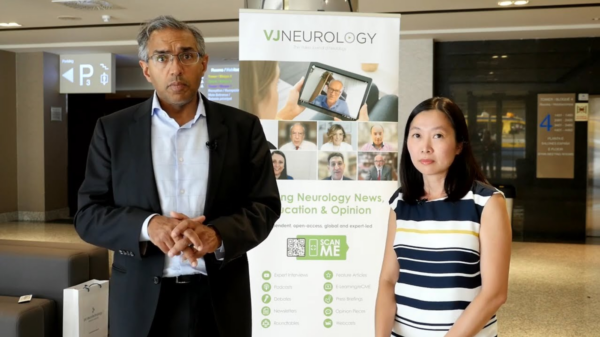Recent studies have demonstrated that neuroinflammation plays a crucial role in numerous neurodegenerative diseases, including Huntington disease (HD). In spite of the absence of approved disease-modifying therapies for HD, there is a growing interest in developing targeted complement therapies to address this neuroinflammation.
In a recent analysis, Rajeev Kumar, MD, and colleagues reported the final results of ANX005, a humanized monoclonal antibody designed to inhibit C1q, from a phase 2 trial (NCT04514367) involving patients with or at risk for developing HD. Kumar, the primary author and medical director of the Rocky Mountain Movement Disorders Center, presented the findings orally at the 2023 American Academy of Neurology (AAN) Annual Meeting in Boston, Massachusetts, from April 22-27.1

At the 2023 AAN Annual Meeting, the Rocky Mountain Movement Disorders Center’s medical director explained the phase 2 ANX005 Huntington illness study’s motivations.
In the investigation, participants with a CAG-Age-Product (CAP) score of 400 or higher received intravenous ANX005 every two weeks until week 22. The endpoints were evaluated during treatment up to week 24 and during post-treatment follow-up up to week 36. Kumar and colleagues concluded that ANX005 was well tolerated and maintained complete target engagement, demonstrating clinical improvement in a subset of HD patients.
Kumar sat down for an interview with NeurologyLive® at the AAN Annual Meeting to discuss the role of neuroinflammation in neurodegenerative diseases such as HD. Additionally, he discussed how targeting the complement cascade, specifically C1q, reduces neuroinflammation in neurodegenerative diseases. In addition, Kumar discussed the patients who were enlisted in the ANX005 phase 2 trial.

